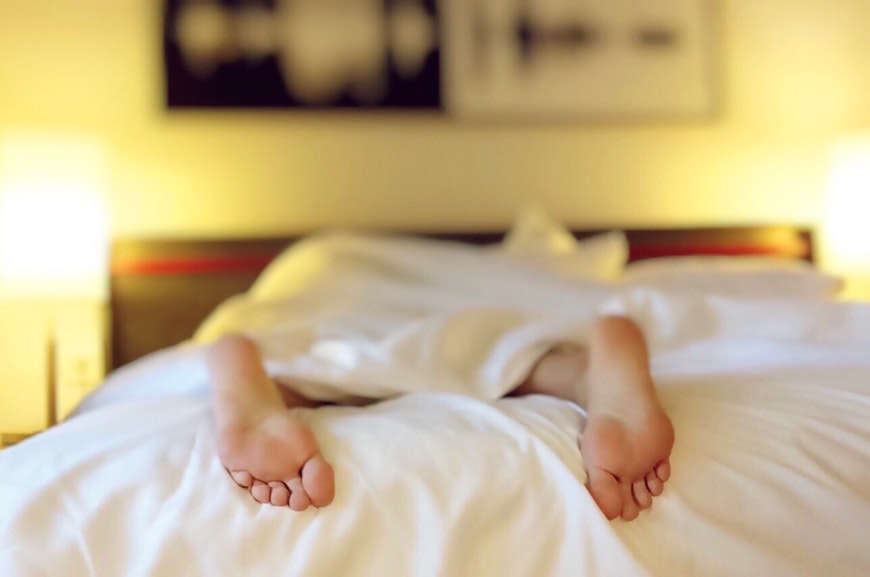
Overview
Insomnia is a sleep disorder that’s relatively common and can make it difficult to fall asleep, stay asleep, and cause you to wake up early and not be able to fall back asleep. You can still feel tired when you wake up. Insomnia can sap not only your mood and energy level, but also your quality of life, health, and work performance.
The amount of sleep considered to be ‘enough’, will vary from person to person, but most adults require 7-8 hours per night.
At some point, many adults will experience acute (short-term) insomnia. This can last for days or weeks. Usually it is the result of a traumatic event or stress. Some people have chronic (long-term) insomnia that lasts for a month or greater. Insomnia could be the primary problem, or it could be associated with other medications or medical conditions.
Often simple changes to your daily habit will help, but sometimes you may need insomnia medication.
Symptoms
Insomnia symptoms can include:
- Waking up during the night
- Not feeling well-rested after a night’s sleep
- Waking up too early
- Difficulty falling asleep
- Ongoing worries about sleep
- Irritability, depression or anxiety
- Increased accidents or errors
- Difficulty paying attention, focusing on tasks, or remembering
- Daytime tiredness or sleepiness
Causes
Insomnia could be the primary problem, or it might be associated with other conditions.
Usually, chronic insomnia is a result of life events, stress, or habits that disrupt sleep. If you treat the underlying cause that can resolve insomnia, however it can sometimes last for years.
Common causes of chronic insomnia include:
- Stress. Concerns about school, family, work, finances, or health can keep your mind active at night which can make it hard to sleep. Stressful life events or trauma – such as divorse, job loss, or the death or illness of a loved one – can also lead to insomnia.
- Travel or work schedule. Your circadian rhythms act as an internal clock, and guide things like your metabolism, sleep-wake cycle, and body temperature. Disrupting your body’s circadian rhythms can result in insomnia. Causes include working a late or early shift, changing shifts frequently, or jet lag.
- Poor sleep habits. Poor sleep habits include naps, uncomfortable sleep environment, irregular bedtime schedule, using your bed for work, eating, or watching TV, and stimulating activities before bed.
- Eating too much late in the evening. Having a snack before bedtime is ok. Eating too much can cause you to feel physically uncomfortable while lying down.
Chronic insomnia could also be associated with medical conditions or the use of certain drugs. Treating the medical condition can help to improve sleep, but the insomnia might persist after the medical condition has improved.
Additional common causes of insomnia include:
- Mental health disorders. Anxiety disorders like post-traumatic stress disorder, could disrupt your sleep. Awakening too early could be a sign of depression. Insomnia also occurs with other mental health disorders.
- Medications. There are many prescription drugs that may interfere with sleep, like certain antidepressants and medications for blood pressure or asthma. Many over-the-counter medications like allergy and cold medications or pain medications as well as weight-loss products, contain caffeine and other stimulants that can disrupt sleep.
- Medical condition. Examples of conditions that are linked to insomnia include: cancer, chronic pain, asthma, heart disease, gastroesophageal reflux disease, diabetes, Parkinson’s disease, Alzheimer’s disease, and overactive thyroid.
- Sleep-related disorders. Sleep apnea causes you to stop breathing periodically through the night which interrupts your sleep. Restless legs syndrome causes unpleasant sensations in your legs and an almost irresistible desire to move them which can stop you from falling asleep.
- Caffeine, nicotine and alcohol. Coffee, cola, tea, and other caffeinated drinks are stimulants. Drinking them in the evening or late afternoon can keep you from falling asleep at night. Nicotine in tobacco products is another stimulant that may interfere with sleep. Alcohol might help you fall asleep, but it prevents deeper sleep stages and can cause you to wake up in the middle of the night.
Insomnia and aging
Insomnia becomes more likely with age. As you get older, you might experience:
- Changes in sleep patterns. Sleep often gets less restful as you age, so noise or other changes in the environment are likely to wake you. With age, your internal clock also often advances so you will get tired earlier in the evening and wake up earlier in the morning. But older people usually still need the same amount of people as young people do.
- Changes in activity. You can be less socially or physically active. A lack of activity can interfere with getting a good sleep. Also, the less active you are, the more likely you are to take a daily nap which can interfere with sleep at nighttime.
- Changes in health. Chronic pain coming from conditions such as back problems or arthritis as well as anxiety or depression can interfere with sleep. Issues that increase the need to urinate at night (like bladder or prostate problems) can disrupt sleep. Restless legs syndrome and sleep apnea become more common with age.
- More medications. Older people usually use a larger number of prescription drugs than young people do, which increases the chance of medication related insomnia.
Insomnia in children and teens
Sleep problems can also be present in children and teenagers. However, some children and teens just have trouble getting to sleep on a regular basis as their internal clocks are more delayed. They want to go to bed at later times and sleep later in the morning.
Diagnosis
Depending on your situation, an insomnia diagnosis and the search for the root cause can include:
- Physical exam. If you’re unsure of the cause of the insomnia, your doctor might do a physical exam to look for signs of medical problems that could be related to your insomnia. Occasionally, a blood test might be requested to check for thyroid problems or other conditions that could be associated with poor sleep.
- Sleep habits review. In addition to asking you questions related to your sleep, your doctor might get you to complete a questionnaire to determine your sleep-wake pattern as well as your level of daytime sleepiness. You might also be asked to keep a sleep diary for a few weeks.
- Sleep study. If the cause of your insomnia is unclear or you have signs of another sleep disorder like restless legs syndrome, or sleep apnea, you may need to spend a night at a sleep center. Tests will be done to monitor and record various body activities while you sleep such as breathing, brain waves, eye and body movements, and heartbeat.
Treatment
For many people, restful sleep can be restored by changing sleep habits, and addressing any issues that could be associated with your insomnia. These issues include: medical conditions or medications, and stress. If these measures don’t work, your doctor might recommend cognitive behavioral therapy, medication, or both to help improve sleep and relaxation.
Cognitive behavioral therapy for insomnia
Cognitive behavioral therapy for insomnia (CBT-I) can help you eliminate or control negative actions and thoughts that keep you awake, and is a first line of treatment for people with insomnia. Typically, CBT-I is equally or even more effective than sleep medications.
The cognitive part of CBT-I teaches you to recognize and change beliefs that may affect your ability to sleep. It helps to control or fully eliminate negative thoughts and worries that are keeping you awake. It can also involve eliminating the cycle that can develop where you worry so much about getting to sleep that you’re unable to fall asleep.
The behavioral part of CBT-I helps to develop good sleep habits and avoid the behaviors keeping you from sleeping well. Strategies include:
- Stimulus control therapy. This method helps to remove factors that tell your mind to resist sleep. For example, you could be coached to set a consistent bedtime and wake time, use the bed only for sleep and sex, avoid naps, and leave the bedroom if you can’t sleep within 20 minutes, only returning if you’re sleepy.
- Relaxation techniques. Progressive muscle relaxation, breathing exercises, and biofeedback are ways to reduce anxiety at bedtime. Practicing these techniques can help you control your muscle tension, breathing, mood, and heart rate so you can relax.
- Sleep restriction. This therapy aims to decrease the time spent in bed and avoids daytime naps. This causes partial sleep deprivation, which makes you more tired the next night. Once your sleep improves, your time in bed gets increased gradually.
- Remaining passively awake. Also called paradoxical intention, this therapy for learned insomnia aims to reduce the anxiety and worry about being able to fall asleep by getting in bed and trying to stay awake rather than expecting or trying to fall asleep.
- Light therapy. If you fall asleep too early and then awaken too early, you can use light to push back your internal clock. You could go outside during the time of year when it’s light outside in the evenings, or you could use a light box.
Your doctor could recommend other strategies related to your sleep environment and lifestyle to help you develop habits that promote sound sleep and reduce daytime tiredness.
Prescription insomnia medications
Prescription sleeping pills used as insomnia medication can help to get you to sleep, stay asleep, or both. Doctors usually don’t recommend relying on prescription sleeping pills for more than a few weeks, though several insomnia medications are approved for long-term use.
Examples include:
- Ramelteon (Rozerem)
- Eszopiclone (Lunesta)
- Zolpidem (Edluar, Zolpimist, Ambien, Intermezzo)
- Zaleplon (Sonata)
Prescription insomnia medication can have side effects like daytime grogginess and increasing the risk of falling. They can also be habit-forming, so ensure you talk to your doctor about these medications before using them.
Over-the-counter insomnia medication
Nonprescription insomnia medications contain antihistamines that can make your drowsy, but they’re not intended for regular use. Before using these, talk to your doctor. Antihistamines can cause side effects like dizziness, daytime sleepiness, cognitive decline, confusion, and difficulty urinating.


